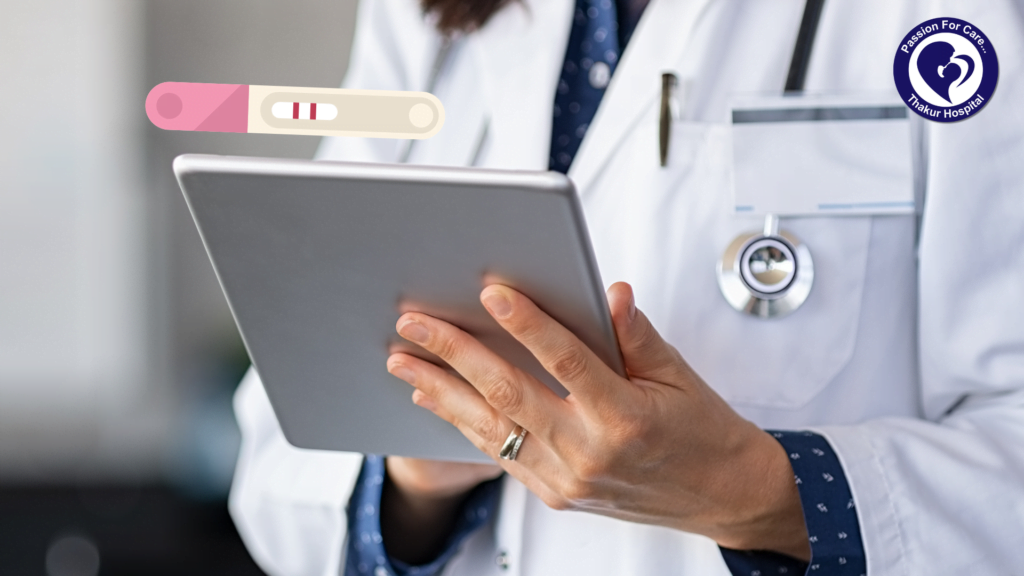Congratulations! You might be stepping on the incredible journey of parenthood. A missed period, nausea, and fatigue can all be early signs of pregnancy. While home pregnancy tests offer a convenient first step, visiting your gynaecologist provides the most accurate confirmation and sets the stage for essential prenatal care.
This blog will delve into gynaecologists’ methods to confirm pregnancy and guide you through the initial stages. Understanding these steps can empower you to make informed decisions about your health and the well-being of your developing baby.
Confirmation Techniques Used by Gynecologists
So, you’ve taken a home pregnancy test, and it’s positive. While exciting, it’s natural to have questions and seek professional confirmation. Here’s how your gynaecologist will help:
- Reviewing Your Medical History: During your initial consultation, your doctor will gather valuable information. This includes details about your overall health, menstrual cycle regularity, any past pregnancies or miscarriages, and even surgeries you may have undergone. This comprehensive picture helps them understand potential factors that might influence your pregnancy.
- Physical Examination: A pelvic exam is a standard procedure performed by your gynaecologist to assess your reproductive organs. This painless exam allows them to feel for changes in your uterus size and position, which can be indicative of pregnancy. With your consent, the doctor may also perform a breast exam to check for tenderness, a common pregnancy symptom.
- Pregnancy Test (Blood Test): Unlike home pregnancy tests that detect hCG (human chorionic gonadotropin) in your urine, a blood test offers a more precise and sensitive method, especially in the very early stages. hCG is a hormone produced by the developing placenta shortly after implantation. A blood test can detect even minuscule amounts of hCG, providing a definitive answer to the question of pregnancy.
There are two types of blood pregnancy tests:
- Qualitative hCG Test: This test simply confirms the presence or absence of hCG in your bloodstream, providing a quick “yes” or “no” answer.
- Quantitative hCG Test: This test measures the exact amount of hCG present. While not always necessary for initial confirmation, it can be helpful in certain situations, such as monitoring the development of a multiple pregnancy or identifying potential complications.
- Ultrasound (Optional): While not always required for initial confirmation, an ultrasound can provide visual evidence of the pregnancy and an estimated gestational age. This painless procedure uses sound waves to create images of your uterus and the developing fetus. There are two main types of ultrasounds used in early pregnancy:
- Transabdominal Ultrasound: This ultrasound utilizes a probe placed on your abdomen to transmit sound waves and create images on a screen.
- Transvaginal Ultrasound: This ultrasound uses a smaller probe inserted into your vagina to obtain more detailed images, especially in the very early stages of pregnancy. (Source: National Institutes of Health
Making Sense of the Results:
Your gynecologist will discuss the results of each test with you clearly and comprehensively. They’ll explain what the findings mean in the context of your situation and address any questions you may have. A positive pregnancy test and confirmation from your doctor mark the beginning of a transformative journey.
Confirm Your Pregnancy with a Trusted Gynecologist in Karnal
If you suspect you’re pregnant, it’s essential to confirm it with a professional. Our experienced gynecologists in Karnal use the latest techniques and provide compassionate care to ensure accurate results and guide you through the next steps. Schedule your appointment today with the best gynecologist in Karnal and take the first step towards a healthy pregnancy.
Refrences



